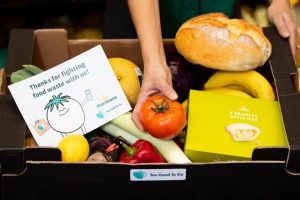by Stas Ghiletchi, Local Correspondent from Moldova
GDSI has been organising yearly Hackathons since 2017, bringing innovative minds together to create digital tools for the future. This year the consortium, through the Eastern Partnership Civil Society, organized a regional Ideathon. Its goal was to develop technological tools to empower civil society to better serve the needs of communities. The event was scheduled to take place in Chisinau, Republic of Moldova, but due to the outbreak of a global pandemic the consortium made the decision to move the event online.
In all the Hackathon was a huge success and 16 project ideas were selected. We spoke to two of the Hackathon’s participants Roman Sandu and Natalie Panga to chat about the event.
Roman Sandu is the director of the Healthy Future Information Centre from Tiraspol and wants to create an application that will facilitate the creation of a voluntary blood donor movement.
Natalia Panga wants to facilitate the re-distribution of unused food from restaurants and stores which would still be suitable for consumption.
EaP Local Correspondent: How is your idea going to improve the lives of people around you? What main problem does your digital tool try to solve?
Roman Sandu: The problem that we tried to address at the hackathon is the provision of donor blood in Transnistria. In order to solve this problem, we are developing a web application that would foster the establishment of a blood donor movement. Our mission is to make sure that whenever somebody needs blood, it would be available at the Blood Transfusion Service without the need to ask for relatives to help or search for donors on the web.
Natalia Panga: Our idea is to create a service that would facilitate the sale of leftover food at a discount price. It would be the leftover food that was not sold during the day,but would still be suitable for consumption. Our project tries to solve two very important problems: environmental – to reduce the amount of wasted food that is suitable for consumption, thereby conserving the resources of the planet; and social – some groups cannot afford enough food because of low incomes and high food prices.

EaP Local Correspondent: What were the challenges in designing this idea?
Roman Sandu: Problems are always in your head! At first, I had to overcome certain stereotypes and limitations. I had to understand more about the target group, what goals they have, how they live, what actions are needed in order to make sure that people come to donate blood regularly. I was happy to have a good cooperation with the Blood Service. They understand the importance of promoting the blood donation movement.
Natalia Panga: The most difficult part was to find ways to convince restaurants, cafes, bakeries to stop throwing out still good food and allow people to buy this food at a discount. It is not easy to find information concerning the amount of food that would be thrown and its shelf life.EaP Local Correspondent: What are the next steps that need to be performed in order for full-fledged development and launch?
Roman Sandu: We need working hands! A lot of them. Hands that will help us implement various technical solutions. At the moment, things are moving rather slowly as the project does not have enough financial resources or interested investors. But we do have a group of IT volunteers who help with the implementation. In any case, we will finalize this project, but it is a matter of time. Our main need at the moment is for web designers, so if anyone is interested, you can find us on Instagram donor online.
The Hackathon was the most significant event of 2020
Roman Sandu
EaP Local Correspondent: How would you describe your experience in the EaP Civil Society Hackathon 2020?
Roman Sandu: This is the most significant event of 2020. Very good organization of all online events, mindful organizers, effective mentoring support and good IT specialists. It allowed me to start the product development process. The hackathon experience changed me from the inside out and now I see various non-commercial solutions very differently.
Natalia Panga: Participation in EaP Civil Society Hackathon 2020 was very interesting. We gained a lot of new knowledge and useful experience from mentors and participants from around the world.
EaP Local Correspondent: Are young people interested in participating in such events? And are they excited to develop tools that might transform the lives of people around?
Roman Sandu: This format is very promising, but unfortunately it is not widely used. It would be nice if this project would continue and if other new similar projects would emerge. This is an excellent opportunity to promote your ideas and find interested partners.
Natalia Panga: Of course, the interest in such events is huge. Exposure to various case studies is very important and necessary. By learning from each other we will be able to change the lives of those around us and the planet itself!
This article was produced by Stas Ghiletchi, the Project’s local correspondent and EaP Civil Society Fellow from Moldova in the framework of the EU-funded ‘Eastern Partnership Civil Society Facility – Regional Actions’ Project. Its contents are the sole responsibility of Stas Ghiletchi and do not necessarily reflect the views of the European Union or the Project.

